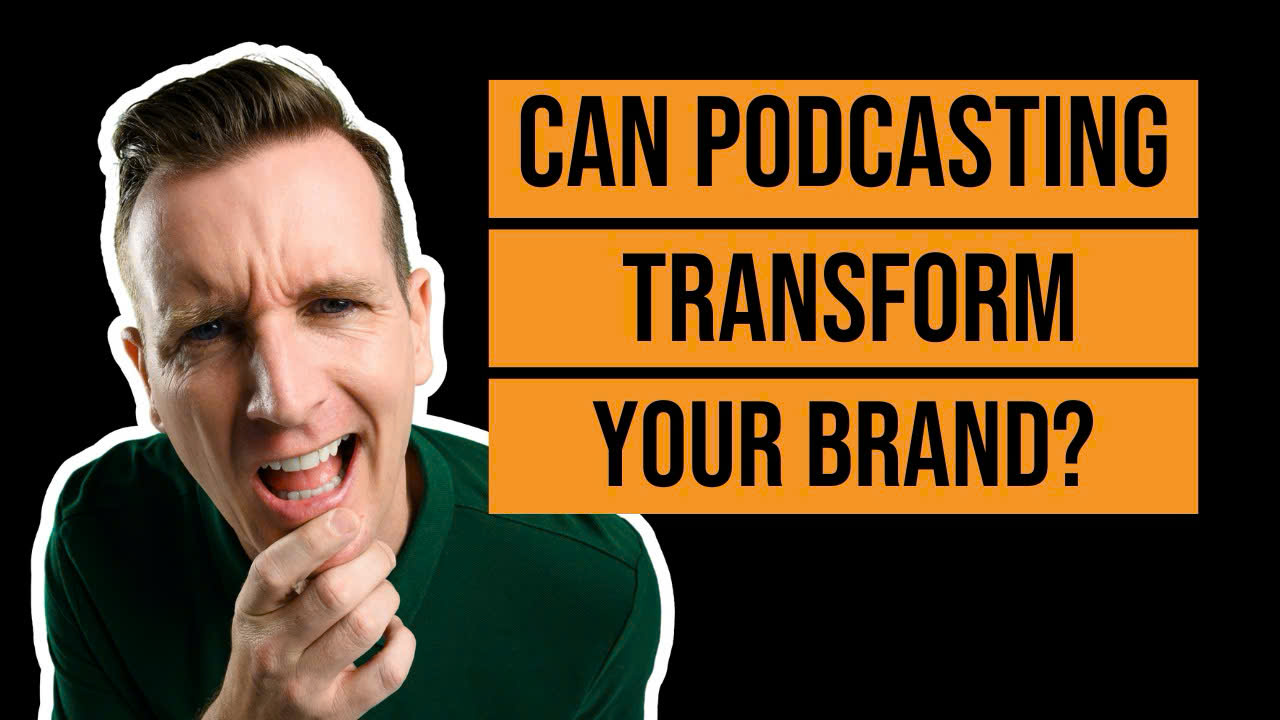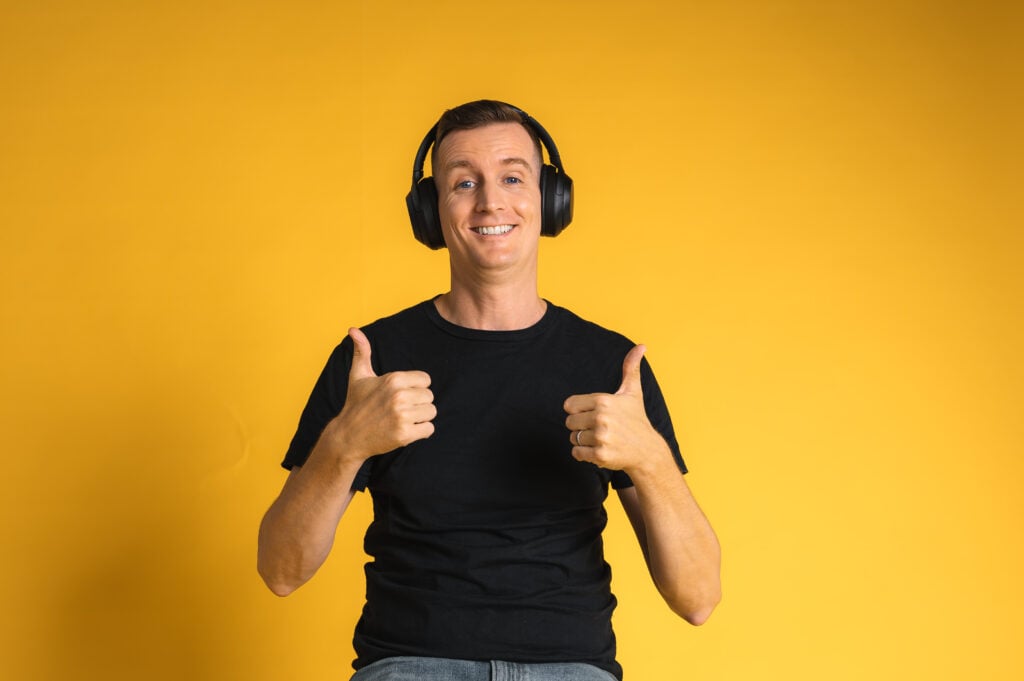“It doesn’t feel like work. And it’s only possible because you guys have spent your hours on the edit. That’s why I work with Seven Million Bikes Podcasts.”
(THIS EPISODE WAS CREATED IN 3 HOURS!!)
I talk to Radim Malinic — creative director, TED speaker, six-time author, and host of the Mindful Creative Podcast — about how launching a podcast changed his business forever.
Since January 2024, Radim has released over 140 episodes, grown his audience, and turned his podcast into a lead-generation machine — all while working just four hours a day across multiple businesses.
We cover:
- How podcasting helped him land clients across his design, publishing, and coffee companies
- The biggest workflow mistakes people make (and how to avoid them)
- The tools that save him hours every week — Calendly, Riverside, Claude, Mailchimp, and more
- Why quality audio is a non-negotiable in 2025
- How he’s using his podcast to write his next book — live
- Why guest booking and editing should never be DIY if you’re running a business
10 reasons to start a podcast for your business
- Build your brand through storytelling – It lets you share your vision, values, and voice authentically.
- Reach new clients and generate leads – Radim mentions converting guests into clients.
- Network with high-level professionals – You get to “pull up your chair to the big boys’ table.”
- Create content at scale – With an efficient system, you can produce multiple episodes quickly.
- Increase credibility and authority – Being a podcast host positions you as an expert.
- Support other business efforts – Radim aligns podcast themes with book launches.
- Turn complex ideas into conversations – Helps share nuanced thoughts in a human way.
- Boost visibility without paid ads – Leverages word-of-mouth and organic discovery.
- Easy integration with newsletters and email marketing – Radim connects his show directly to a 7.5k list.
- Repurpose conversations into products (books, consulting) – Radim is writing a book “live” from episodes.
If you’re a business owner still on the fence about starting a podcast — this is your sign.
🎧 Ready to get started with your own show?
Book a free discovery call today at sevenmillionbikes.com or email me at niall@sevenmillionbikes.com
This episode actually came about from a WhatsApp chat. We talk almost every day in a group with our senior editor, and Radim mentioned something that really stood out. He said that people often think podcasting is a full-time job. That it’s too much work. But he’s living proof that it doesn’t have to be.
He shared that he first wanted to start a podcast back in 2018, even before I did. But he didn’t feel ready. When the timing finally felt right, podcasting became an extension of his books and writing. In fact, each podcast season is now named after one of his books. He’s even planning to write his next book “live” through the podcast – using guest interviews and bonus episodes as part of the process. I thought that was such a cool idea.
Radim told me he’s not just passionate about podcasting – he’s obsessed. Not with the editing or the tech stuff, but with what podcasting can do. The impact it can make. The way it lets him connect with others and grow his business.
He also said something I hear often: people think podcasting takes too much time. But once the system is set up properly, it can actually be easy. That’s exactly what we helped him do. We made sure his workflow worked smoothly across all his businesses, including his coffee company!
For Radim, podcasting became a smart way to grow his brand and connect with big names in his industry. He now uses his show to ask creative people deep questions they don’t often get asked. No scripts. No templated questions. Just real conversations.
Making Podcasting Easier with the Right Workflow
A few weeks before we recorded this episode, Radim went to a big conference in Mexico. He met lots of people there who already had podcasts, and they all seemed to say the same thing — podcasting felt like too much work.
This was exactly the kind of thing I love helping people with. At Seven Million Bikes Podcasts, our job is to make podcasting easier. That’s why I wanted to dig into it more with Radim and ask him what problems people were having.
Tools and Software
He’s now using Calendly connected to Riverside, all syncing to his Slack and iCloud calendar. No back-and-forth messages. No guessing. Just set times — 10 AM or 9 PM UK time — because that’s when his kids are either at school or asleep. And guess what? Every guest can make it. Because people love talking about themselves, and they’ll find the time.
Radim also uses Riverside for client calls now, not Zoom. He’s got different links and calendars depending on the type of meeting. Everything runs smoothly. And once the episode is recorded, he sends it straight to us at 7 Million Bikes. We clean it up, edit it, and deliver it sounding crisp and professional.
Quality First, Always
Radim told me he’s had lots of compliments about how good his show sounds. That made me feel so proud, because quality is our number one value at 7 Million Bikes.
When our team sat down to define our values, here’s what we chose:
- Quality
- Creativity
- Making a Difference
Creativity doesn’t have to be a big, flashy thing. Sometimes it’s just editing a small pause or fixing the timing so people don’t talk over each other. It’s in the little things that make the podcast better.
Even today, I still hear big-name podcasts with poor sound quality — laptop mics, mouth clicks, fan noise, background sweeping… You name it.
Radim laughed and said even when his guests show up with no mic in a noisy room, the final episode still sounds great. He said he didn’t know how we did it, but we did.
And that’s exactly what makes me proud of the work we do at Seven Million Bikes Podcasts.
Simple Podcasting Advice for 2025
Share What People Can’t See
Radim now tells his guests to talk about the things people don’t see in their work or life. That’s where the best conversations come from.
He also admitted that, in the beginning, he made the same mistake a lot of new podcasters do — making it all about himself. He quickly realised the podcast should be for the guest, and the listener, not just for the host.
Don’t Overcomplicate It
Radim mentioned a friend who’s been podcasting for years and still edits using GarageBand. That might work for some people, but for him, it’s all about saving time.
He now uses Descript, where he can skip through the transcript and edit the episode without having to listen to everything. After the recording, he spends about two hours getting the episode ready. We take care of the hard part — the editing.
The 80/20 Rule of Podcasting
Radim said that podcasting now feels easy. He puts in around two to two-and-a-half hours per episode, and we take care of the rest. He’s able to schedule a whole month of episodes in just one afternoon.
When he tells other people that, they’re shocked. Many podcasters are still struggling, and that’s when they ask him to show them how he does it.
Podcasts Create Business Opportunities
When most people think about making money from a podcast, they think about sponsorships or ads. But the truth is, only a small number of podcasts ever make good money from ads, usually the ones with huge audiences.
That’s why I always tell people: the real value of podcasting is in building relationships and growing your own business.
Radim’s Experience
Radim is a great example of this. He doesn’t run ads on his show. He doesn’t chase sponsors. Instead, he uses his podcast as a tool to connect with people — and many of those people have become clients.
Some guests have bought his coffee. Others have published books through him. Some have hired him for consulting. All of that came from having honest, interesting conversations on his podcast.
Your Podcast is a Door Opener
A podcast can open doors that cold emails and ads can’t. When you invite someone onto your show, you build trust. You have their attention for a full hour. That kind of connection can lead to real business, not just downloads.
Podcasting isn’t just about content. It’s a way to network, share your expertise, and show people what it’s like to work with you.
And that’s something I always encourage my clients to focus on.


